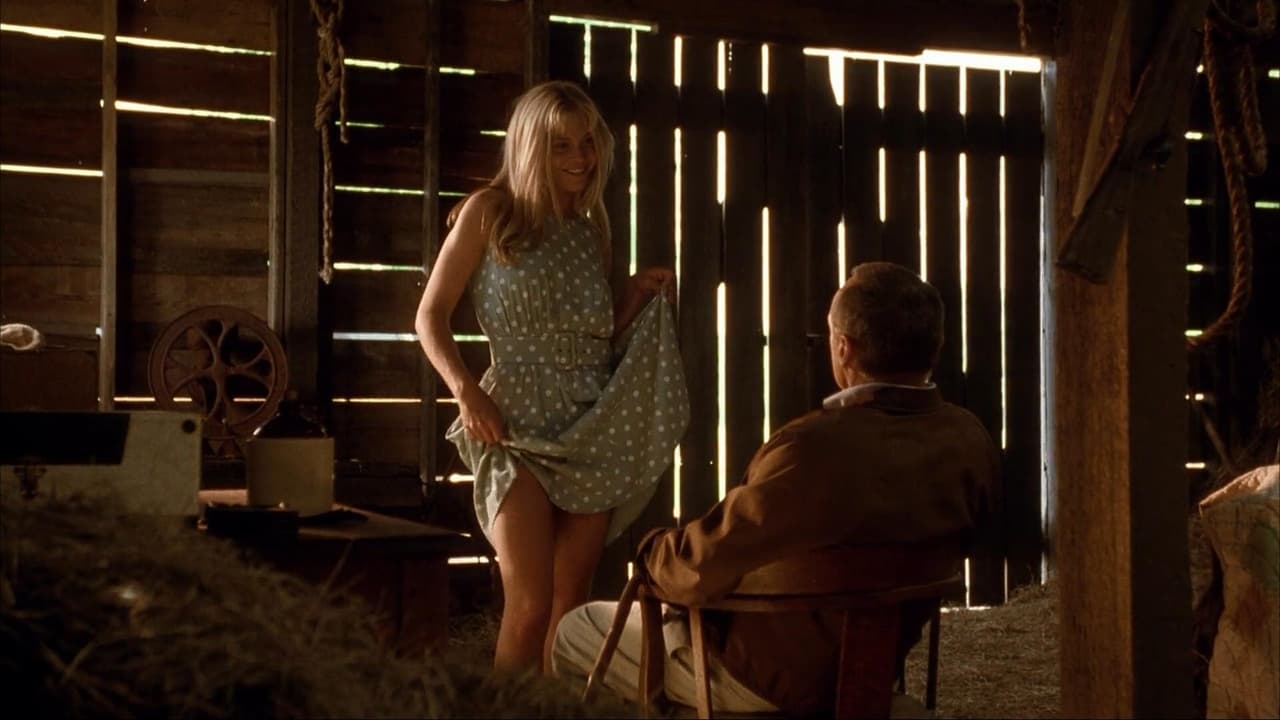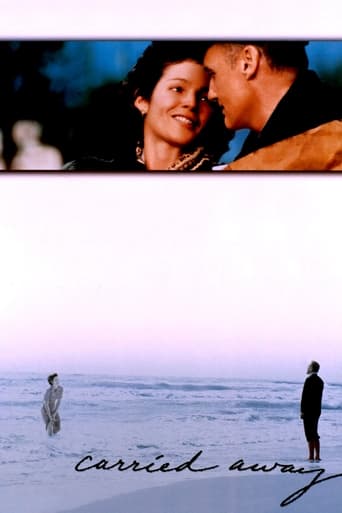

Carried Away is nothing short of a masterpiece. Every single scene and piece of dialog in this film has a solid purpose. The camera work is the so gentle and subtle it crosses over from camera work to camera art. Every actor on screen is perfectly cast. The story of a Midwest farmer in the early 1960's whose life is jolted out of a monotony of safe boredom and into a dangerous moral dilemma. Not the kind of danger we see these days like CGI robots from the future, but the real danger of your entire life as you know it crumbling in front of you and your helpless to stop it, or yourself. The story unfolds before you like the slow blooming of a flower and in the first ten minutes I was so gripped by the subtle nuances, I felt like I was transported to the small town of Howardsville. I simply cannot say enough about this film. Watch it and you'll understand.
... View MoreSometimes it's completely incomprehensible to understand how "Carried Away", the excellent film by Brazilian director Bruno Barreto, is perceived by some of the contributors to this forum. "Carried Away" is a movie based on a novella by Jim Harrison with a fine screenplay by Ed Jones, who does a fine job in adapting it for the viewer. Mr. Barreto is not a timid man, as he has shown in his other films. While most people object to the graphic nudity, it is never in one's face, or something that is done for shock value, like some other directors tend to do whenever they don't have anything better to say.The story about a sensitive man who has been left somewhat crippled after a childhood accident in the farm where he lives, presents us a man in turmoil. His life, while not completely shattered, is in total disarray as one meets him, years after he suffered the foot injury. Joseph Svenden is basically a decent man. We watch him in the rural school where he teaches, and later on, working in the farm where he lives with his older mother. Joseph is clearly a man whose life has passed him by because since he never married, he has stayed behind with the mother, while his siblings are all settled and living away.Joseph is seeing Rosalee, another teacher from his school. They have a cozy arrangement. Neither of them is in a rush to formalize their relationship. At this point of his life, Joseph falls for one of his students, Catherine, who obviously is way ahead of him in being sexually active. She seduces the quiet man, who falls head over heels with this young woman, who comes from an unhappy home. In fact, we have no clue until almost the end, when Catherine's parents come to confront Joseph, what's wrong with the young woman.The kind Rosalee finds out in the worst way about Joseph's infidelity, sending her into despair because she loves the man. Joseph confronts Rosalee and owns up to his transgression. Joseph's feelings for Rosale make him finally see where his priorities ought to be. The last sequence of Joseph and Rosalee at the beach has to be one of the loveliest moments in the film.Dennis Hopper plays Joseph to perfection. Mr. Hopper is believable in his low key approach to the role. He is an actor who works well with any director, and it seems to us he is responding well to Mr. Barreto's guidance. Amy Irving, an actress of great beauty and inner power, shows a Rosalee that shows no emotion at all, but we know all is well under control inside her, until the explosion at the end when she feels betrayed by the man she loves. Ms. Irving does excellent work in the film. Amy Locane, plays Catherine as a brat who wants to get what she wants, when she wants it. Mr. Locane is a beautiful sight on the screen. The rest of the cast, Hal Halbrook, Julie Harris, Gary Busey, and the rest, are seen at their best.Thanks to Bruno Barreto for bringing this lovely character study to the screen.
... View MoreOften-volatile Dennis Hopper really gets a chance at a thoughtful dramatic performance here playing a Texas farmer and schoolteacher, semi-engaged to a fellow instructor, who is seduced by a teenage temptress. Low-keyed picture doesn't aim for shocking revelations or melodrama; it's exceedingly straightforward and just a bit dull. Good acting by Hopper, Amy Irving, Amy Locane (from "Cry Baby"), and Priscilla Pointer, though the movie could really use some adrenaline. Some nude scenes, filmed without a hint of titillation, are remarkable only for the fact that no one, including director Bruno Barreto, is energized by the sex--it's all kept very mundane. ** from ****
... View MoreThis is a beautiful and rare look at rural America in the 1960s. Dennis Hopper plays a schoolteacher with a gimpy leg who is quite unexceptional. He's middle-aged but still only engaged (to Amy Irving who is fantastic in this!)and still lives with his aged mother (the wonderful Julie Harris). Suddenly, a young, fresh, beautiful and vibrant teenager arrives at his school and he finds his heart - and other vital organs - stirred beyond endurance. She's technically not innocent (she's not a virgin) but she's no Lolita either. She's the epitome of the young women of Andrew Wyeth's paintings. In fact, the whole film looks and feels like a Wyeth painting: organic and idyllic with an emptiness that's filed with loneliness. The script is intelligent and original, allowing each character to be fully developed, and Dennis Hopper gives the performance of his career.I've read a few reviews here and elsewhere that complain about Hopper's age and the frontal nudity. I belong to the school of thought that nothing natural is ugly, and that art should not ALWAYS be pure and youthful and beatific (which BTW, was what Hitler's vision was. Art that wasn't beautiful was classified as "degenerate" and banned). If there's room for artists like Michelangeo and Egon Schiele in this world, and there's surely room for Brad Pitt AND Dennis Hopper! If the nude body is something that you just can't look at then a film like this may not be for you (there's only one very brief scene). But keep in mind that you can't broaden your vision of humanity if you don't have an open mind and are willing to look below the superficial surface that at least in Hollywood, poses as reality.
... View More